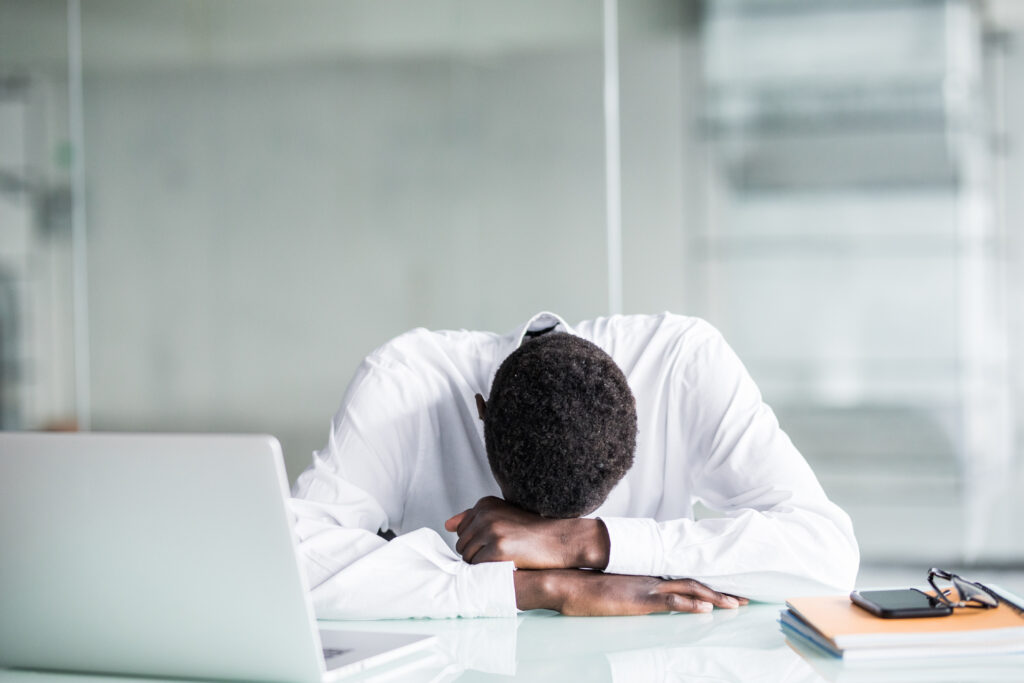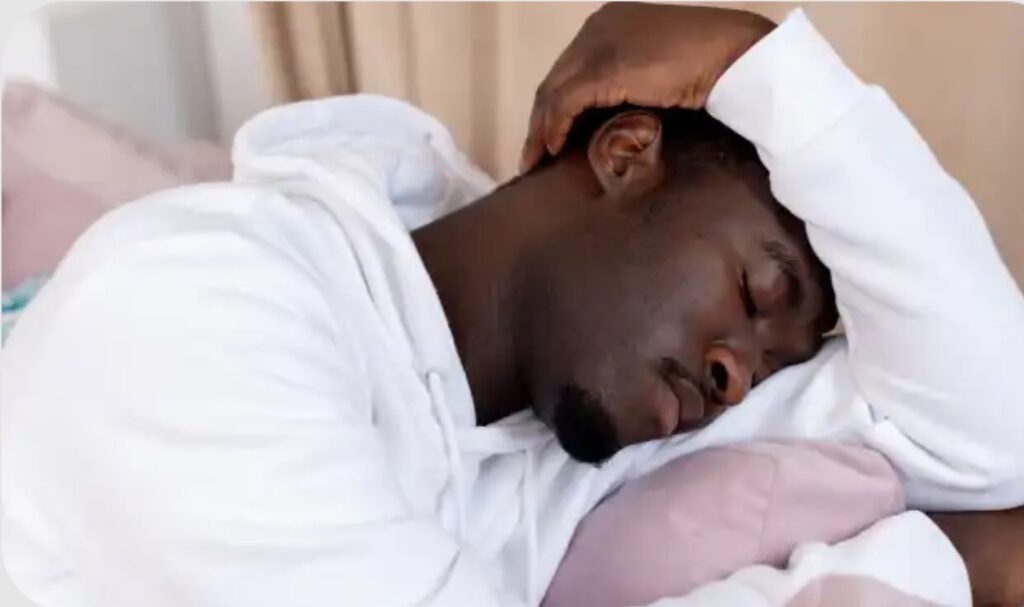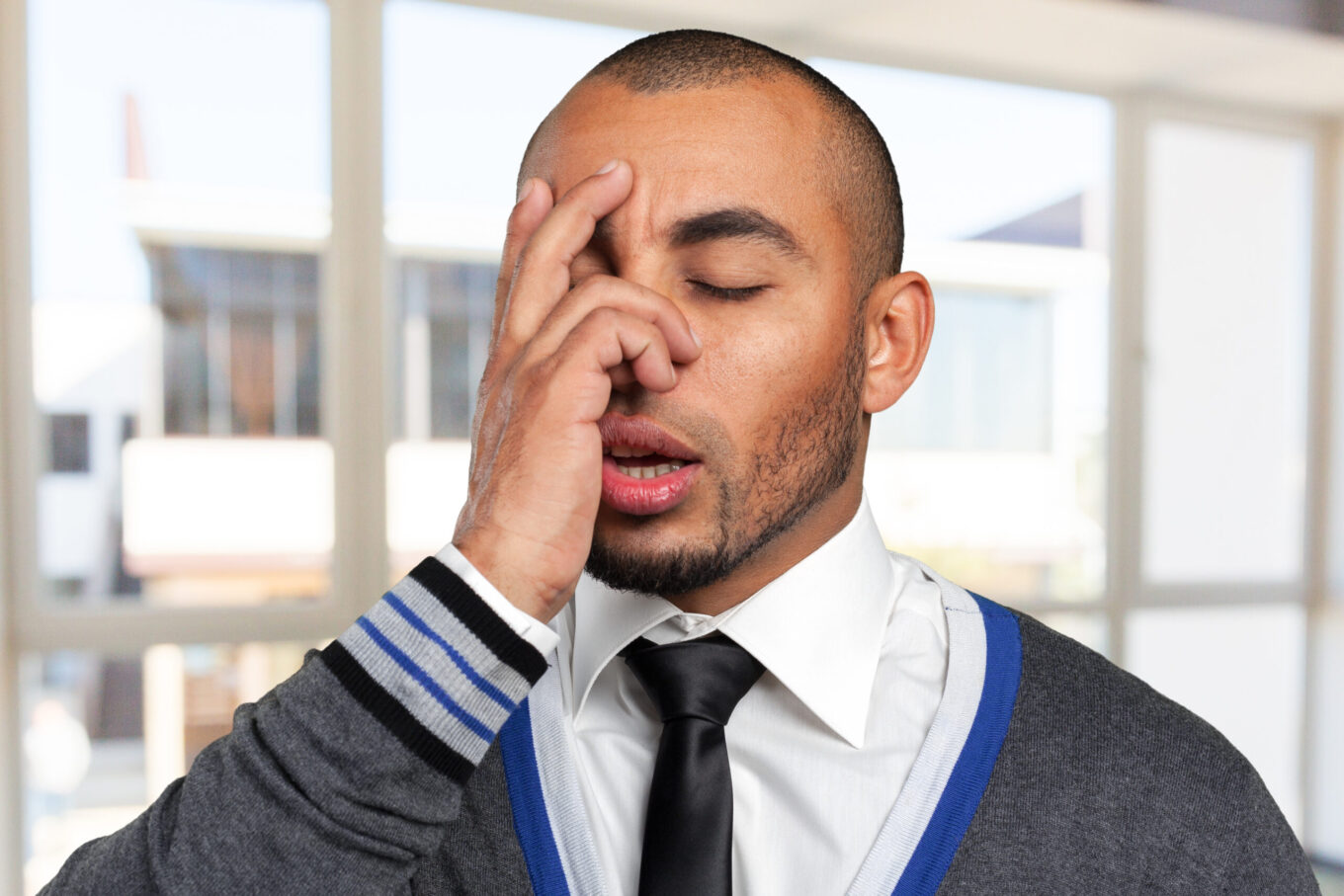In a world that praises hustle culture and late-night grinding, a startling truth has emerged from Dreem Health and Sunrise’s newly released State of Sleep Health Report: only 7% of Americans wake up feeling well-rested. That number hits harder when we realize men of color, especially those in low-income communities, are even more likely to be among the sleep-deprived.

According to the report, stress and anxiety (54%) are the leading causes of disrupted sleep. That is followed closely by environmental factors like noise and light (44%) and breathing issues such as snoring or sleep apnea (21%). For Black and Brown men navigating systemic stressors, economic pressures, and health inequities, percentages don’t just represent statistics, they mirror reality.
The Sleep Care Gap: What’s Keeping Us Awake

Dr. William Lu, Medical Director at Dreem Health, nails it: “If you break a leg, you go to the hospital. But when sleep becomes a struggle, most people assume it’s just part of life—or worse, their fault.” That mindset is especially prevalent in communities where access to mental health care and sleep medicine is limited or stigmatized.
Sunrise’s data also reveals that only 38% of Americans are familiar with sleep apnea, a condition that disproportionately affects Black men yet often goes undiagnosed. This is part of a larger issue Dreem Health is working to address: the lack of accessible, culturally aware sleep care.
Technology Meets Cultural Understanding
“What truly works is combining smart technology with expert care,” says Laurent Martinot, CEO of Sunrise. Their partnership with Dreem Health, a digital sleep clinic, is reshaping how sleep care is delivered. From at-home diagnostics to personalized treatment plans, this model strips away the barriers of traditional healthcare and brings support straight to the bedside.
With 24% of sleep-struggling Americans actively seeking help, there’s a clear hunger for solutions. Yet, without trust and representation in healthcare, many men of color continue to suffer in silence.
The Hidden Cost of Sleep Deprivation
Sleep deprivation isn’t just about being tired; it affects focus (41%), mood stability (40%), and anxiety levels (31%), according to the report. These symptoms have ripple effects in every part of life, from workplace performance to personal relationships.

For men of color who are often expected to embody strength and resilience. Admitting to fatigue or emotional instability can feel risky. But precisely why these conversations need to happen loudly and publicly.
Wake Up to Better Sleep
Here’s the truth: Rest is revolutionary. In communities of color, reclaiming sleep isn’t a luxury—it’s a necessity. It’s also an act of resistance against systems that profit from our burnout.

Thanks to companies like Dreem Health and Sunrise, there’s now a path toward real, personalized sleep care that doesn’t require jumping through hoops. It starts with awareness and continues with action.
Visit dreemhealth.com to explore the 2025 State of Sleep Health Report and take the first step toward deeper rest and better living.
Also Check Out



Leave a Reply